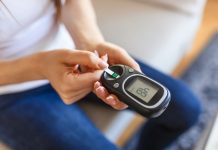
In a world where fast food chains outnumber parks and gyms, type 2 diabetes has emerged as a global health crisis. This silent condition affects millions, slowly creeping up on unsuspecting individuals.
But what if I told you that, unlike many lifelong conditions, type 2 diabetes can often be reversed? This article dives into the causes of type 2 diabetes and explores the hopeful path to reversal.
Type 2 diabetes occurs when your body either resists the effects of insulin — a hormone regulating the movement of sugar into your cells — or doesn’t produce enough insulin to maintain normal glucose levels.
The result? A buildup of sugars in the bloodstream, leading to various health issues over time. But why does this resistance happen? The answer lies in a combination of genetic, lifestyle, and environmental factors.
The Role of Lifestyle: Unhealthy eating habits, a sedentary lifestyle, and excess weight, especially around the waist, significantly increase the risk of developing type 2 diabetes.
Foods high in sugar and saturated fats but low in fiber and nutrients can cause spikes in blood sugar levels, while inactivity further decreases insulin sensitivity.
Genetics and Environment: If your family tree has roots tangled with diabetes, your risk increases. However, genes aren’t destiny. Environmental factors, like access to healthy food and safe places to exercise, also play a crucial role.
Despite these seemingly dire causes, the silver lining is that type 2 diabetes can often be reversed, primarily through changes in lifestyle. Here’s how:
Diet Overhaul: Embracing a diet rich in whole foods, vegetables, lean proteins, and healthy fats can help manage blood sugar levels. The Mediterranean and DASH diets are excellent examples, focusing on nutrient-rich foods and limiting processed items and sweets.
Get Moving: Regular physical activity helps your body use insulin more efficiently. Both aerobic exercises, like walking or swimming, and resistance training, like lifting weights, can be beneficial. Aim for at least 150 minutes of moderate activity per week.
Weight Loss: Shedding even a small percentage of body weight can dramatically improve diabetes symptoms and, in some cases, lead to remission. This is particularly true for those who lose weight through diet and exercise soon after diagnosis.
Monitoring and Medication: Keeping a close eye on blood sugar levels is crucial. In some cases, medication may be required to manage diabetes, but these can be reduced or eliminated as blood sugar levels improve with lifestyle changes.
Sleep and Stress: Don’t underestimate the power of a good night’s sleep and stress management. Poor sleep can affect insulin sensitivity, and stress can raise blood sugar levels. Practices like mindfulness, yoga, and adequate sleep hygiene can make a significant difference.
Research evidence supports these lifestyle interventions. Studies have shown that individuals with type 2 diabetes who adopt healthier habits can see significant improvements in their blood sugar levels.
Some even reach a point where they no longer meet the criteria for diabetes, effectively putting their diabetes into remission.
In conclusion, while the causes of type 2 diabetes are multifaceted, involving an interplay of genetics, lifestyle, and environmental factors, the disease’s progression is not inevitable.
By making informed lifestyle changes, it’s possible to reverse the condition and reclaim your health. Remember, the journey to reversing diabetes starts with small, manageable steps. With the right support and determination, turning the tide on type 2 diabetes is within reach.
If you care about diabetes, please read studies about Vitamin D and type 2 diabetes, and to people with diabetes, some fruits are better than others.
For more information about diabetes, please see recent studies that low calorie diets may help reverse diabetes, and 5 vitamins that may prevent complication in diabetes.
Copyright © 2024 Knowridge Science Report. All rights reserved.



